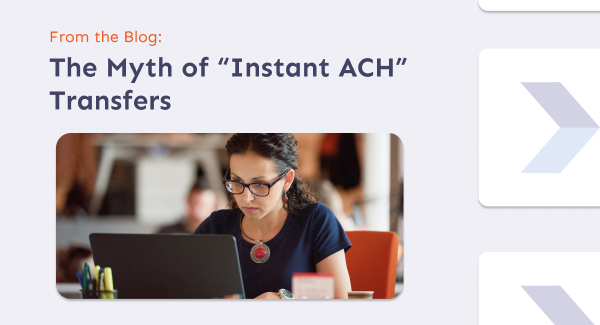The Problem with Small Businesses and Accounting Technology

Accounting technology has come a long way since the dawn of time. While it took thousands of years to go from clay tablets to iPads, modern accounting software has evolved at the speed of light. In less than 30 years we’ve moved from early enterprise resource planning (ERP) systems to the versatility of the cloud.
What does this mean for the average small business? Unless you own an accounting or bookkeeping business, it’s not likely that a spreadsheet is your spirit animal. However, cloud-based software-as-a-service (SaaS) applications, like Forwardly, have made it easier for small businesses to harness the benefits of automation.
The problem is many small businesses are not only time-starved — they’re somehow missing out on the time and money they could save by adopting accounting technology.
Industry surveys indicate small businesses aren’t keeping up with the pace
According to the good folks at the GetApp Lab, we’re currently in the “Age of Intelligent Accounting.” We’re living in a time when technology lets you easily forecast cash flow, automate data entry, improve processes and securely share data.

Yet, a FitSmallBusiness study of 293 small business owners found that no single form accounting software, in any category, had a usage rate of 50% or more. The only category that came close was general accounting software with 49.8%. In fact, most categories came in at 40% or less.
QuickBooks found similar results when it surveyed 400 small business owners with 20 employees or less. Most spent more time than they’d like on back-office operations, such as accounting, administrative tasks, bookkeeping, inventory and accounts receivable. Furthermore, only 30% of these small businesses considered themselves “highly automated.”
Why aren’t small businesses adopting accounting technology at historic rates?
Most small businesses said cost was the main reason they weren’t using small business accounting software and other accounting technology. The irony is that these tools are often quite affordable. For instance, the “Simple Start” version of QuickBooks Online is $20 USD a month and there are often sign-up promotions.
Then there’s the simple fact of valuing the time and the savings gained by preventing costly mistakes. Every hour that a business spends on a process that could easily be automated is an hour that’s lost toward growing the business. An hour spent each day on updating a spreadsheet adds up to 5 to 7 hours a week or 20 to 28 hours a month.
Mistakes also cost time and money. Any business that files its taxes late without filing an extension, will be fined. The longer the problem goes unsolved, the more interest and penalties accrue. Without proper processes, solving the problem is also harder. Any mistake that goes unresolved can easily snowball into a spiral of despair.
Pro-Tip
In most cases, the costs of accounting software and related accounting technology are tax-deductible in both the United States and Canada.
The times are changing and so should small businesses
Within the next few years, 80% of accounting and finance tasks will be automated. If you take the literal translation of few as three years, this is soon, very soon.
It doesn’t mean the robots will take over. What it means is those small businesses who embrace process automation by using cloud-based small business accounting software and the ever-growing ecosystem of apps will:
- Reduce errors by up to 95%.
- Make some processes up 4 times faster.
- Gain cost savings of up to 80%.
“Cloud accounting automation capabilities will significantly streamline internal operations. This lowers the risk of data loss and miscommunication. And given the technology’s low cost of entry and maintenance, its return on investment cannot be ignored.”
—Tammatha Denyes, TD Accounting Services, 2018 QuickBooks Firm of the Future Runner-up
Where small businesses can leverage accounting technology
According to small business owners themselves, they spend too much time on accounting, bookkeeping, administration, inventory and chasing payments. However, they’d rather be spending more time on things like building their teams and marketing their products and services.

Going back to the costs of failing to automate:
- 70% of small businesses aren’t using apps to help them automate scheduling — which not only wastes time, it puts these businesses at risk of violating labor laws and increasing turnover.
- 60% of small businesses aren’t automating their payroll — let’s just say that in the history of bad ideas, this is one of them. Hello, tax laws anyone?
- Only 21% of small businesses have integrated their accounting software with invoicing apps — considering late payments are a top business concern and cash flow headache, this should be a “no-brainer.”
Any small business accountant or bookkeeper reading this piece is probably saying, “Yes, yes, yes!” to all the points above. But how do we turn the tide and get small businesses to take advantage of the simplicity and effectiveness that accounting tech offers?
The role accountants and bookkeepers play
“We can consult with our clients to help them solve their pain points as they occur and make real-time changes to their business. This makes us more valuable than ever before.”
—Tanya Hilts, Cloud Bookkeeping Services, 2018 QuickBooks Global Firm of the Future Winner
Once a business works with an accountant and/or bookkeeper, they quickly see the benefits of this relationship. From complying with tax and labor laws to setting and achieving financial goals, there are no better advocates than small business accountants and bookkeepers.
As the people establishing financial processes, accountants and bookkeepers have a unique opportunity to get small businesses using accounting technology. Many financial professionals have their core go-to apps that they often recommend to businesses. Slowly but surely, this is how the bridge will be gapped.
When you consider that 40% of small businesses claim that doing their own bookkeeping and taxes was the worst part of being a small business owner and another 64% do their bookkeeping by hand, it’s easy to see where the opportunity lies.
It’s all about empowerment
“With every new client we bring on, my primary missions are the same: to make their financial processes easier and to help them reach their financial goals.”
—Michael Ly, Reconciled, 2018 QuickBooks US Firm of the Future
At Forwardly, we’re 100% behind empowering accountants, bookkeepers and small businesses. It why we’ve developed our risk assessment and cash flow tools and why we’ve invested in creating useful, informative and actionable content in our blog.
Just as businesses benefit from automation, so do accountants and bookkeepers. There’s no need to spend hours building custom reports. Grow into your role as an advisor and advocate by helping businesses see the big picture with Forwardly.
| Keep getting bad loan terms? Forwardly helps you improve your cash flow position, so you can get more financing and pay less interest. Sign up now for free. |
The information in this article is not financial advice. It does not replace the expertise that comes from working with an accountant, bookkeeper or financial professional.
Image: GraphicStock.. Age of Intelligent Accounting infographic via GetApp. Table of back-office tasks via Intuit QuickBooks.


